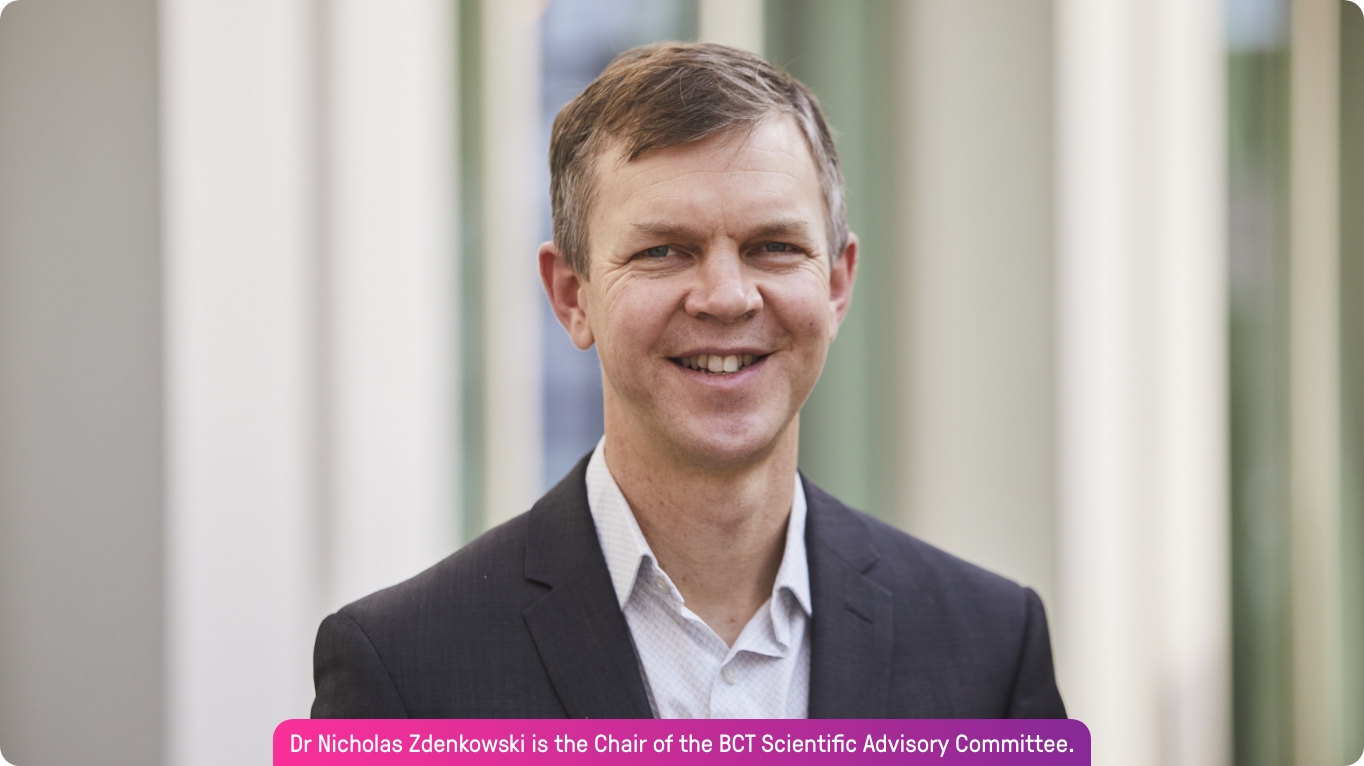The Year in Review
The Scientific Advisory Committee (SAC) is working well together, with complementary expertise across a range of disciplines. New project proposals have been reviewed across systemic therapy, surgery, radiotherapy and supportive care. Many of these are overlapping, demonstrating the multidisciplinary nature of breast cancer research and clinical practice.
The SAC meets once per year face to face and three times per year in an online meeting format, which has been a good balance to maximise attendance and minimize travel time. The SAC has also had a diverse range of observers attend meetings to get a taste of how the group functions. Hopefully this will translate into more concepts submitted, and potential future SAC members.

The last year has seen presentations and publications representing the culmination of the work that we do here at BCT. The PROSPECT radiotherapy omission trial was published in The Lancet, a high profile journal, and presented at a number of prominent and high impact conferences. The primary results of the neoadjuvant Neo-N trial were presented as a late breaking oral abstract at the San Antonio Breast Cancer Symposium. The neoadjuvant CHARIOT trial results were presented at the American Society of Clinical Oncology Annual Meeting. These data stimulated much discussion and ideas about the next steps towards improving breast cancer outcomes.
Trial recruitment was strong across the open trial portfolio. The BCT-led international EXPERT trial is moving closer to completing recruitment with the involvement of ANZ and global sites. A collaboration with the Canadian Clinical Trials Group on the FINER trial has resulted in successful recruitment. The OPTIMA trial opened across the BCT network, with the aim of contributing data that will support the utility of the Prosigna test for Australian and New Zealand patients. We have had ongoing substantial efforts with the BRCA-P trial, that unfortunately has not recruited at target rates globally. The DECRESCENDO trial closed due to slow recruitment, despite strong scientific interest, and we expect that valuable information will still be obtained. The CAPTURE trial continues, with a new strategy to open up prescreening for circulating DNA PIK3CA mutations at non-trial sites around Australia. The TUGETHER trial opened strongly, indicating the clinical need for better strategies to treat advanced HER2 positive breast cancer.
The next generation of trials are in development and working towards opening. CAMBRIA-2 is a collaboration with the Austrian Breast and Colorectal Study Group for high-risk early stage patients. OLIO, developed and led by BCT researchers, aims to evaluate Olaparib in young patients with HRD-positive tumours. An additional Neo-N cohort will open to evaluate enhanced immunotherapy for neoadjuvant treatment of early stage triple negative breast cancer. And the PROSPECTIVE trial will follow on from PROSPECT, to provide the necessary multi-site, international validation of results to allow implementation of the PROSPECT model of care approach.
The SAC and BCT are keen to hear from people with tractable research ideas that are relevant to breast cancer trials. There is a range of support available for the right ideas to be turned into reality so that we can continue to progress towards helping breast cancer patients worldwide live longer and better.
Dr Nicholas Zdenkowski
Chair of the BCT Scientific Advisory Committee